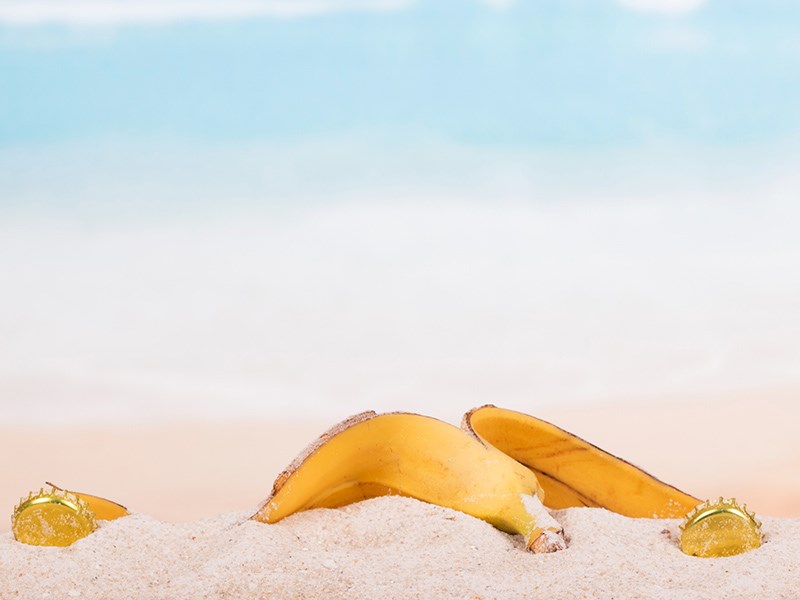It all starts out so innocently. We head out on the trails or hop into a kayak to explore the magical forests, lakes and beaches we call home, take only pictures and leave only footprints. Oh yes, and the occasional banana peel. Wait, what?
We justify our littering thinking we are “composting” or “feeding” the wildlife. Truth be told, we’re probably a little skeptical that this is totally a great idea, but we manage to find excuses to toss instead of loading up our knapsack with soon-to-be stinky leftovers.
We reason that we’re avoiding the landfill, where organic materials go to be preserved for an eternity all the while creating harmful greenhouse gases. And while this is true, being a compost litter bug still is not deserving of a scouting badge.
The problems with leaving food scraps in natural settings are many. On trails and beaches, they are an attractant to wildlife both big and small, potentially endangering future explorers. Also, many food discards, such as orange peels, break down slowly and create visual pollution.
In the water, it is even harder to hide the evidence, so to speak, as most food debris floats along the surface in an ugly mess. Beyond this, it is a misdirect to believe sea life is necessarily interested in our discards or even likely to benefit from snacking on them. And, to add insult to injury, adding nitrogen-rich food scraps to waterways can contribute to a damaging cycle of nutrient overload, where plant life is overfed and grows fast enough to blanket out the sun’s rays.
These blankets effectively create dead zones for all sea life beneath them. While this is usually associated with runoff of fertilizer into lakes from farms, the principle still stands.
It only takes a moment to give back to the planet when we’re out enjoying its beauty. Following the simple rule: Pack it in, pack it out, is a great start.
If you had the energy to bring fruit in, for one, you can certainly carry out the pits, peels and seeds. Collected materials can be taken to the local community compost bin at the Town Centre Recycling Depot if you do not compost at home.
To avoid odours for multi-day trips, use resealable baggies for compostable discards such vegetable peelings, paper napkins, bones, and similar items. Boaters can use a small, tightly sealable bucket for all compost, and another for recyclables.
Take photos of your efforts to share and inspire others who are heading out into the wild this summer.
Let’s Talk Trash is Powell River Regional District’s waste-reduction education program. Find out more at [email protected].



